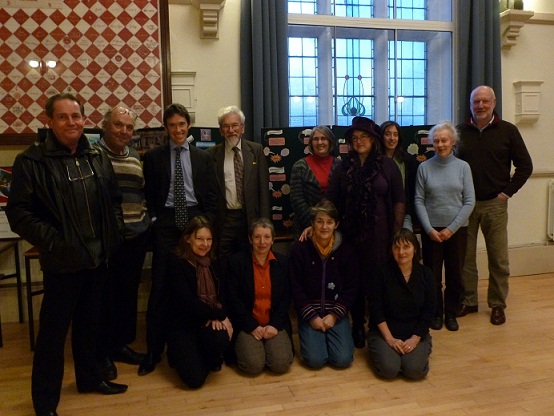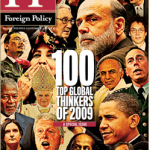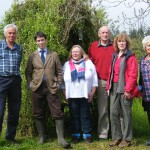When I came back to London this week I found, in my cupboard, four jackets, each with a poppy in their lapel. On the day of the Penrith Remembrance service, the international football association banned the English football team from wearing poppies, on the grounds that they were ‘a nationalist symbol’. They are not. They are a response to the First World War: a war that we do not remember as a national victory, a war that in some ways we do not quite know how to remember. We all agree on the horror: the suppurating, machine-gun-riddled holocaust of the trenches; but not exactly on why we fought, or what we gained, or whether, to use the dangerous mantra, “soldiers died in vain”. Trafalgar Day or VE day are victory celebrations. But a poppy is a symbol of something still unbearable and incomprehensible.
We were not attacked in the First World War, and we were not defending British soil. And although we claimed we were fighting for human rights (against German “bestiality”) or for the honour of our alliances, or for the neutrality of Belgium, these were not fundamental reasons. In truth, many of the German atrocities were propaganda inventions, our alliances were recent and not authorised by parliament, and we had considered breaking the neutrality of Belgium ourselves. We crossed the channel and joined the French in their trenches simply because we wanted to preserve the ‘balance of power’ in Europe – a dream from the time of Napoleon. We were driven by a nightmare in which if we failed to act, Germany would occupy France, and then pose an existential threat to Britain and its Empire. Everything, it seemed, must be sacrificed to stop this.
Did Germany pose an existential threat to Britain? Would we have suffered as much as we feared from a German attack on France? I suspect not. What is indisputable, however, is that our attempt to fight them almost finished us as a civilization and a power. Germany had forty divisions in its army at the beginning of the war. We had six, so we were never strong enough, even with the French, to do more than tip the balance towards stale-mate. And that stale-mate continued until we had lost a million lives, bankrupted Europe, destroyed the prosperity and society of a continent, and introduced a suicidal peace settlement. We were at war again within twenty years.
Were we simply naïve, entering the war in a patriotic fervour, drunk on the poetry of Rupert Brooke, and believing it would be over by Christmas? Was it not until the Somme and 1916 that we realised what we had done? That was roughly what I learnt at school. But in fact many in Britain, and Cumbria, predicted what would happen from the beginning. The Carlisle Journal wrote on the 4th of August 1914: “The worst has happened…[there is] little doubt the majority of Englishmen regard being dragged into this war with feelings of amazement and horror.” Further south, the Manchester Guardian wrote, “It will be a war in which we risk everything of which we are proud, and in which we stand to gain nothing…Some day we will regret it.” Even the Times (which was the only major paper in Europe that argued for war) was writing in 1914: “Trenches and always trenches..day after day the butchery of the unknown by the unseen…” It was not only ‘neurasthenic’ war poets who grasped that our plan had not succeeded, was not succeeding, and would not succeed.
Yet, every season, a General produced a new plan, demanded more resources and promised victory. Every season, they were given their resources, and failed to deliver what they had promised. Critics decried the barrages that failed to destroy the German positions, or failed to cut the wire. But the real problem was more fundamental: it began with our decision to enter war. Once it began, no-one seemed to feel they could stop it. Not a single senior General or cabinet minister exposed its folly at the time. Their memoirs imply that impersonal forces – arms manufacturing, technology, public opinion, finance – had left them with no option other than to sink ever deeper. And even when they could no longer believe that all this killing could be justified in the name of ‘the balance of power’, they found a deeper reason to continue: the fear that any withdrawal, after so much death, was impossible because it would mean the soldiers had died in vain. Thus hundreds of thousands more were sacrificed to justify those who had already died.
Since then war has often seemed less bad; the evil of Hitler and our eventual victory justified the Second World War; and the crisp casualty-free successes from Bosnia to Libya have made war appear – at times – as a moral and a prudent act. But the eleventh of November remembers a different phenomenon. It reminds us how a war can become so swollen with fear and guilt, and horror, that it develops – even when no-one believes in it anymore – a momentum of its own. And the reason we should be so reluctant to go to war, however attractive the cause, or promising the odds, lies in this irrational momentum. Because, in war, once you have begun, and begun to fail, we find it almost impossible to turn back.
















